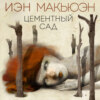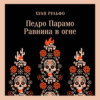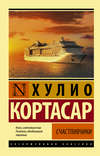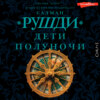Zitate aus dem Buch «Краткая история семи убийств»

And killing don’t need no reason. This is ghetto. Reason is for rich people. We have madness.

The problem with a book is that you never know what it’s planning to do to you until you’re too far into it.

You ever feel like home is the one place you can’t go back to? It’s like you promise yourself when you got out of bed and combed your hair that this evening, when I get back I’ll be a different woman in a new place. And now you can’t go back because the house expects something from you.

There’s a reason why the story of the ghetto should never come with a photo. The Third World slum is a nightmare that defies beliefs or facts, even the ones staring right at you. A vision of hell that twists and turns on itself and grooves to its own soundtrack. Normal rules do not apply here. Imagination then, dream, fantasy. You visit a ghetto, particularly a ghetto in West Kingston, and it immediately leaves the real to become this sort of grotesque, something out of Dante or the infernal painting of Hieronymus Bosch. It’s a rusty red chamber of hell that cannot be described so I will not try to describe it. It cannot be photographed because some parts of West Kingston, such as Rema, are in the grip of such bleak and unremitting repulsiveness that the inherent beauty of the photographic process will lie to you about just how ugly it really is.

Nobody in the game uses their feet, but it’s football. I love how Americans can just claim something to be whatever they feel it is, despite clear evidence it’s not. Like a football game with nobody using any feet that takes forever.

That’s what happens when you personify hopes and dreams in one person. He becomes nothing more than a literary device.

You know, most of this feminism business was nothing more than white American women telling non-white women what to do and how to do it, with this patronizing if-you-become-just-like-me-you’ll-be-free bullshit

But sometimes when you’re too careful it just turns into a different kind of carelessness.

But in another city, another valley, another ghetto, another slum, another favela, another township, another intifada, another war, another birth, somebody is singing Redemption Song, as if the Singer wrote it for no other reason but for this sufferah to sing, shout, whisper, weep, bawl, and scream right here, right now.

The dream didn’t leave, people just don’t know a nightmare when they right in the middle of one.











